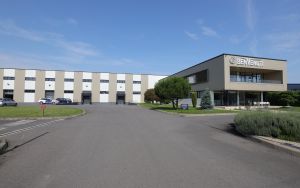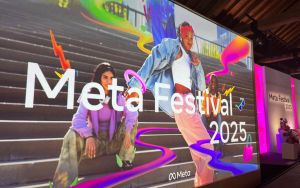The main thing of course is about social networks is that they are worldwide and offer 24/24 access to your potential customers and competitors. Facebook in itself is no longer the leader in understanding these trends. Groupon and others have taken the opening made by Facebook and are exploiting the model. But the real question is not just sales because you could go after sales at low prices and still lose money. It’s about longevity and visibility in the market.
This is what I call VOICE. Tweetdeck was purchased by Twitter because they UNDERSTOOD BETTER than Twitter itself what the interest of the technology was. Yet there is so much information in the online networks that there is overload coming. When YouTube and others opened the door on endless volumes of UGC, the biggest challenge became how to organize this soup into a media. This means right now massive Semantic Engines are needed. These tools are built that spend time combing through your public profile to make it useful for other constituents. This creates new value out of aggregating such data and can be important in terms of industry and services as well. It’s a bit like the effect of seeing a whole stadium filled with people and then suddenly having that „kiss camera“ zoom in on a couple that wins the prize (or receives the advertisement for baby furniture on their webphone).
The crossovers in taste and in relationships are going to make new „selfidentified“ user groups emerge. Facebook will no longer be needed, because once you have a URL for someone then you can aggregate their PUBLIC data into a file and create a media or a persona for them. Even if they don’t want one.
Which are the future developments of social networks marketing?
There are three areas that are going to explode in the next 5 years. The main focus will be on semantic engines that derive meaning from the social personas on the web. The same behaviors we have in life are duplicated but multiplied in the digital networks. People lie, fraud, cheat in this digital arena even more easily than in real life. The reality of information is derived only by very sophisticated semantic engines. They are already working on managing false profiles this way.
The second area is that of persona management—this is the reaction of regular people who have nothing to hide to the transparency that their web persona brings to their existence (when they did not expect this). This started with Spam but now includes invasions that touch your online archive—your Emails from the year 1998, your banking transactions from a dead server in a bankrupt bank etc… so there is a dark side to the social network skills that are in the market. In the hands of hackers and criminals, the ability to create or re-create your persona from your appearances in public spaces is a reality. This brings me to my other area of development in social networking: identity 2.0. The public space has gotten so filled with private details, that there is too little sense and too much noise and, for some people, a little too much transparency. Likely next step is the creation of a new type of online identity both for companies and for individuals.
This will run like a double-keyed public/private code. Most likely credit card companies will develop these technologies and make them into a new source of revenues. A person like you or me will no longer use their real name and data on public web spaces, but register a persona with a central authority. We’ll become our URL. That URL will have payment conditions and three level encoding—the real person and the credit card, the cookie trail and the social network persona will be dissociated over three layers of privacy and held in the cloud, with only a single holder of the true identity key code that brings all the data together. This will make things easier and safer - we’ll never have to give anything but a single code and our fingerprint on a key pad - but of course risk will remain, notably for free expression unless legislation is put in place to protect the identity holding business’ from invasion.
The last trend is the disappearance of the PC as a window into the Social Network. I am myself involved in a business that is creating the concept of a Social Area Network, entirely focused around the smart phone. This will be the one window (with the tablet) on the web of 2020. Screens at home will serve only to be a storage and retrieval and reading device. Everything else will be mobile driven. We all have to admit that the idea of using the Phone as the PCU and the laptop as the syncing device is the future.
What the Social Network will become is what I have called elsewhere the „digital nervous system“ of the planet. It will allow us to manage disease, disasters, create jobs and growth, prevent environmental deterioration and increase democracy at the roots level as well as improve efficiency of everything from our schools to our cars. This may be the final step forward in the realm of fully digital society. The planet will in fact resemble with its billions of points of connectivity among the humans that live here, a magnificent and many-voiced gigantic human brain and nervous system.
 Joshua Bower-Saul is Managing Partner at EX2 Expansion Consulting. A graduate of Harvard and INSEAD, he has 20 years’ experience in innovative project and new market development, regional development and SME and start-up investments. Joshua assists board members in applying creativity and innovation methods to marketing, R&D and international growth. He also reads as a guest lecturer at INSEAD on entrepreneurial growth strategies drawing from his nine start-up experiences. He was present in Romania on June 1st , to present a conference on “The Changed Marketing World: Innovations in Marketing and the Digital Nervous System“, invited by the French Chamber of Commerce and Industry in Romania.
Joshua Bower-Saul is Managing Partner at EX2 Expansion Consulting. A graduate of Harvard and INSEAD, he has 20 years’ experience in innovative project and new market development, regional development and SME and start-up investments. Joshua assists board members in applying creativity and innovation methods to marketing, R&D and international growth. He also reads as a guest lecturer at INSEAD on entrepreneurial growth strategies drawing from his nine start-up experiences. He was present in Romania on June 1st , to present a conference on “The Changed Marketing World: Innovations in Marketing and the Digital Nervous System“, invited by the French Chamber of Commerce and Industry in Romania.







